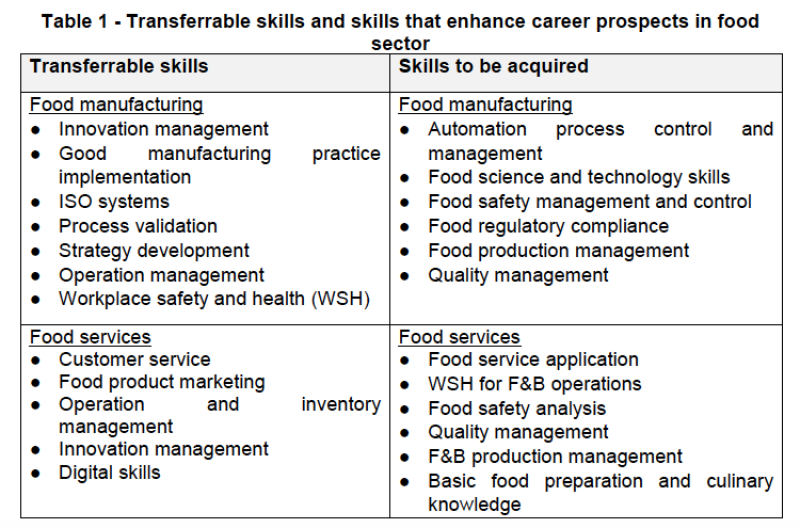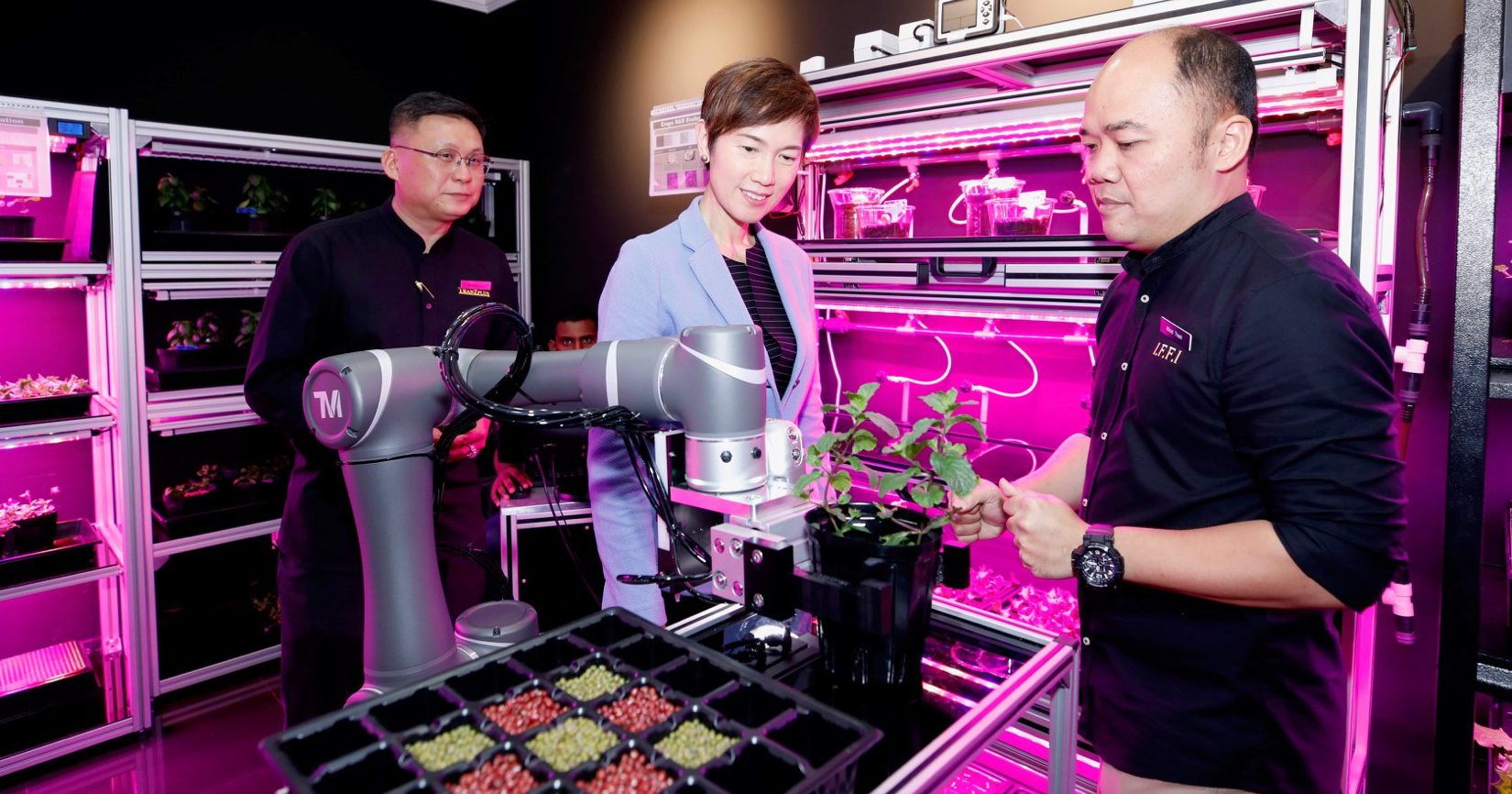The impact of Covid-19 on Singapore's food sector sends a clear signal that both companies and people need to upgrade their skills and acquire new ones to adjust to the new normal.
The Ministry of Manpower (MOM), on Sep. 21, released a jobs situation report on Singapore's food sector, divided into the food manufacturing and food services sub-sectors, that demonstrates this trend.
Food manufacturing
Food manufacturing contributes 1.1 per cent to Singapore's GDP and employs about 48,000 workers.
Companies supplying hotels, restaurants, cafes and food services companies have seen sales plunge by 40 to 90 per cent, given restrictions on movement and the number of diners allowed into dining establishments.
However, companies manufacturing staple food, and those that sold their products online saw a 30 to 70 per cent increase in sales.
This data was taken from Q2 2020.
MOM highlighted that food manufacturers who invested in automation before Covid-19 were still able to record growth despite the circuit breaker measures, as they were able to continue meeting business demands.
Food services
This sub-sector contributes 0.8 per cent of Singapore’s GDP, comprises over 10,000 enterprises, and employs about 180,000 workers.
Unlike the food manufacturing sub-sector, MOM did not reveal information on sales for the food services sub-sector.
However, MOM said it was harder-hit than the former due to reduced footfall and labour shortages.
Once Phase 2 was implemented, MOM said hiring activity in this sub-sector "picked up slightly".
Reskilling leads to new jobs
To help workers cope, Workforce Singapore (WSG) launched the Job Design Reskilling Programme for the Food Services Industry in February 2020.
This involves training existing workers and possibly redeploying them in new roles. At the end of August 2020, nearly 900 workers in 25 companies have benefited.
Since April 2020, 800 companies in the food sector have offered 6,700 job opportunities, with the "majority" being actual jobs, according to MOM.
Some 44 per cent of these job opportunities are PMET roles, like chefs, service managers and business development managers.
Salaries range from around S$2,300 to S$6,000 a month.
Non-PMET roles, like waiters and general foreman, can earn around S$1,500 to S$2,800 a month.
WSG programmes have also helped 1,800 people, from April to July 2020, to take on new roles in the food sector.
Much like the food companies themselves, it's clear that those who make the effort to gain new skills find it easier to find work in new roles.
MOM released a list of skills that will come in handy for this sector:
 Screenshot from MOM.
Screenshot from MOM.
Those without these skills can pick them up through company-hosted traineeships or training courses under the SGUnited Skills Programme.
Since April 2020, close to 80 jobseekers have entered company-hosted traineeships and enrolled for training under SGUnited Skills programme.
This figure appears low, but might indicate there are still opportunities available.
Minister for Manpower Josephine Teo highlighted the efforts of WSG and NTUC's e2i job-matching efforts, with 44,200 jobseekers receiving basic career advice or job search assistance from January to August 2020.
Among them, 25,700 also received individualised career coaching.
Teo said the government remains committed to provide jobseekers with opportunities and help with reskilling.
We deliver more stories to you on LinkedIn
Top image from MOM's Facebook page.
If you like what you read, follow us on Facebook, Instagram, Twitter and Telegram to get the latest updates.
